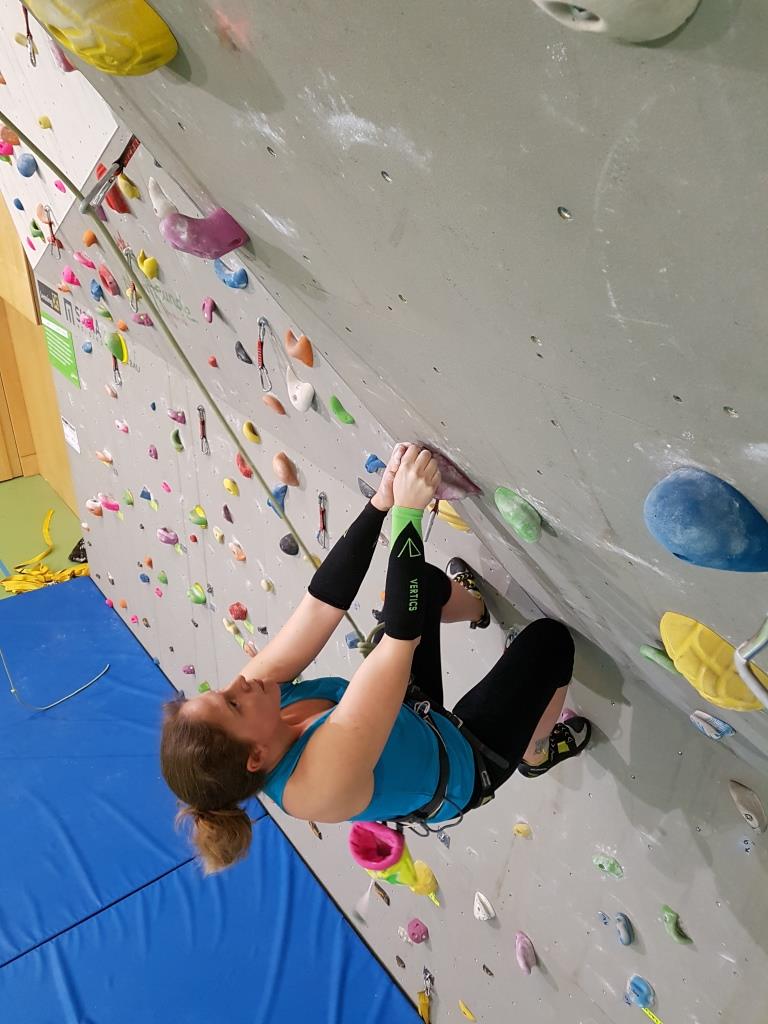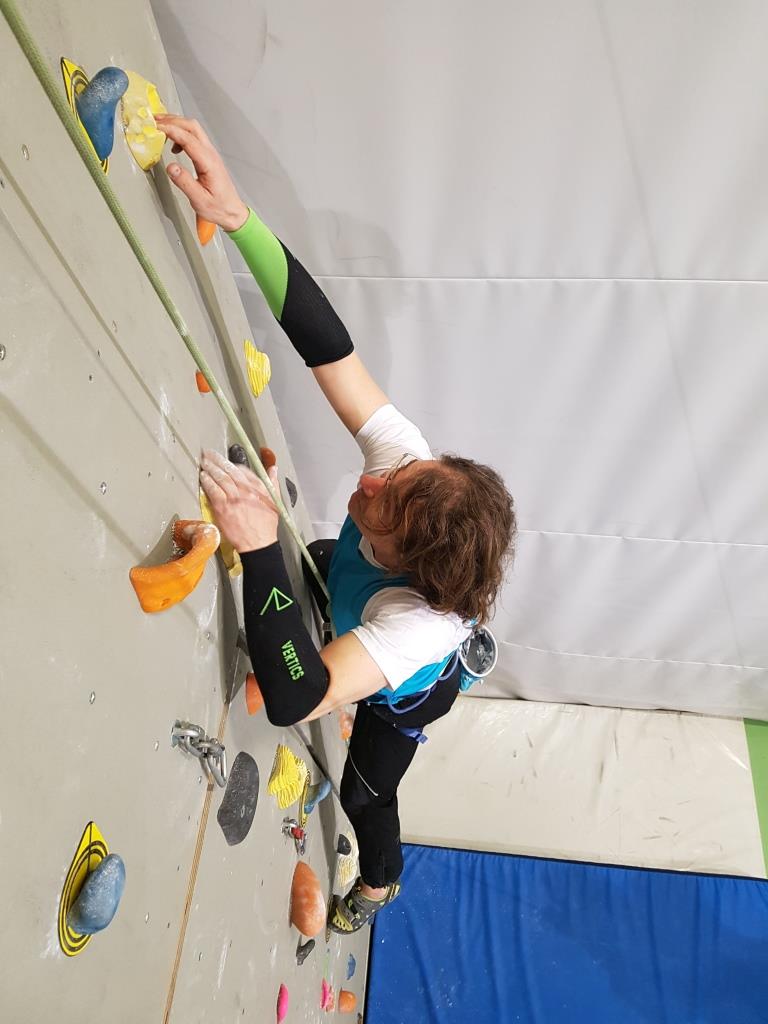Deutsch (German)
Français (French)
Italiano (Italian)
Español (Spanish)
The Paraclimbing Team Austria takes off
The Paraclimbing Team Austria takes off

Paraclimbing
is climbing for people with physical or sensory disabilities. Under the motto “Everyone can climb”, the team of trainers around Katharina Saurwein wants people with disabilities such as amputations, visual impairments, paraplegia or neurological diseases to try climbing and experience the uniqueness of this fascinating sport for themselves.
The long-term goal is to build up a paraclimbing national team in Austria that will compete in international competitions such as World Cups, Masters or World and European Championships. However, since paraclimbing is in its infancy in Austria, the team is still in the development phase. Currently, work is being done to set up paraclimbing courses in as many federal states as possible and to make the sport known. In Tyrol, Vienna and Vorarlberg, this has already been achieved. Soon there will also be courses in Upper Austria.
The specific task is to set up an Austrian national team, to make paraclimbing better known in Austria and to be able to compete with as many athletes as possible at the 2018 World Championships in Innsbruck in the new climbing centre, to enable them to compete internationally and to win one or two medals for Austria. In order to be able to tackle this goal realistically, the athletes need the right equipment (climbing shoes, harnesses, ropes,…), professional training with well-trained coaches, national and international training camps and the chance to gain experience in national and international competitions.
explains Katharina Saurwein, who is Franziska Saurwein, Ines Kappacher, Alexandra Gauster (Vienna) and Madeleine Eppensteiner (Vorarlberg) will be supported in training the Austrian paraclimbing athletes. It is impressive what the athletes achieve, how much enthusiasm they have when climbing and how much fun the training gives them. The team currently trains 2-3 times a week for about 2.5 hours.
The team training
The athletes have different impairments, but this does not prevent them from stepping on the gas during training and pushing themselves to their limits.

Jasmin has also recently developed spasticity on her arms and she thinks that the sleeves make climbing easier during spasticity.


Gabi and Friederike find that their performance is increased by the sleeves and that fatigue is reduced.

Christian says that the stockings are a bit too tight for him. Maybe you would need a larger size (he trains a lot in the studio and has correspondingly large arm circumferences). He finds that he tires more slowly when he wears the sleeves. He now has a new pair of VERTICS. Sleeves in size III.

Peter thinks that VERTICS. Sleeves fit perfectly, are comfortable to wear and keep the arms pleasantly warm during the break.
VERTICS. Sleeves for training and competition
Despite the many different impairments, everyone pulls together to achieve the goals they have set. Especially in the case of damage to the musculoskeletal system, the forearms are particularly stressed when climbing. The mechanisms of action of muscle compression can be all the more helpful when climbing with disabilities. This increases the endurance of the forearms and reduces and delays the pumping effect, i.e. the cramping or “blue” of the forearms. Regeneration after climbing is also positively influenced. Athletes with disabilities in particular can benefit significantly from the positive effect of VERTICS. Sleeves benefit. By the way, wearing VERTICS. Sleeves allowed at national and international competitions.
VERTICS is very happy to support the athletes with VERTICS. Sleeves Compression Sleeves for the forearms and wishes the entire team and the coaches a lot of fun during training, a successful competition preparation and a lot of energy to achieve the common goals.
